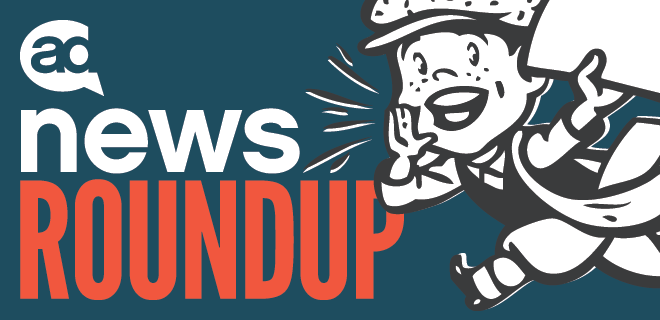
Honest Ads Act Gains Traction With Platforms… If Not in Congress
Both Mark Zuckerberg (in a statement on his own Facebook page) and Twitter (via its Twitter Public Policy handle) have come out in favor of the Honest Ads Act now. In a way, this shouldn’t be too surprising. Zuckerberg had previously said Facebook was okay with the idea of something like the Honest Ads Act—when he was interviewed on CNN in March, he said the premise behind the act sounded reasonable, but that he imagined Facebook could just self-regulate with those goals in mind. Twitter also has also raised its hand to solve transparency issues in its ad business by self-imposing certain standards—in October 2017, it launched the Ads Transparency Center to “go beyond the requirements of the Honest Ads Act.” So, in other words—in an industry that long resisted government regulation and supported some idea of “self-regulation,” major platforms are coming out in support of regulation that they insist they can top on their own. There are questions whether the Honest Ads Act is dead in the water, almost six months after it was introduced to the U.S. Senate, which makes Zuckerberg’s and Twitter’s endorsement feel kind of toothless.
IAB Open Measurement SDK for In-App Viewability/Verification Is Live
The IAB’s Open Measurement SDK is out of beta now. The OM SDK is aimed to help app providers integrate with viewability and verification vendors more efficiently—previously, they’d have to integrate with each separately, which could be challenging (providing comment to AdExchanger, Maria Breza from Pandora called the old process “impossible”). Publishers have been under fire from agencies and advertisers, who are increasingly wary of environments that don’t provide verification.
Chief Privacy Officers to the Front
AdWeek published an in-depth feature on the rise of the Chief Privacy Officer. An increasing number of big companies—AdWeek highlights a lot of major brands in this story—have either hired CPOs or elevated the role within their orgs. The feature describes the CPO as “part lawyer, engineer, businessperson, marketer and customer relations specialist.” It’s a wider-ranging set of responsibilities than those of a chief security officer, responsibilities that cover the ways in which users’ personal data is handled. Of course GDPR is a big motivator in this movement. It’s not just a matter of trying to prevent more data-breach scandals—although that’s certainly a motivator in itself.
Changes from the Top at Fusion Media
Vanity Fair reported on the state of Fusion Media, and it doesn’t look like a rosy picture in this depiction. The backstory: Fusion Media is a division of Univision, launched as a means of playing ball against major digital pure plays. It operates a bunch of web properties, some of which it acquired (The Onion, The Root), and some of which it launched on its own (Project Earth, The Takeout, TrackRecord). In 2016, it bought a bunch of the former Gawker Media brands. This year has appeared a bit rocky for the company, though. The Wall Street Journal reported Univision would be cutting Fusion Media’s costs back in March, and there are reports Univision is entertaining the possibility of selling off part of the Fusion business. There are also noticeable changes in who’s running things, with some higher-ups out the door. Isaac Lee, Univision’s Chief Content Officer, who had headed up Fusion, has now stepped away to focus on other Univision business…
Martin Sorrell Out at WPP
As of this past Saturday, Martin Sorrell is out at WPP, stepping down from the CEO position at the agency he founded 33 years ago. As a lot of us have read, he’s been under investigation for what media outlets have referred to as “misuse of assets” and “improper behavior.” WPP’s revenue had dipped recently and was projecting revenue to flatline for 2018. Until WPP appoints a new CEO, the company’s chairman, Robert Quarta, will serve as executive chairman.